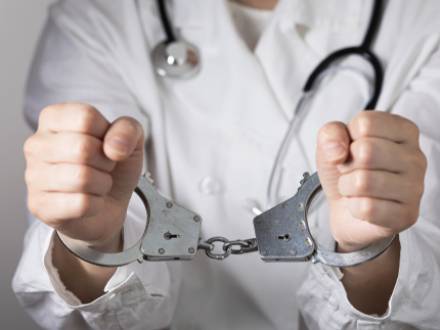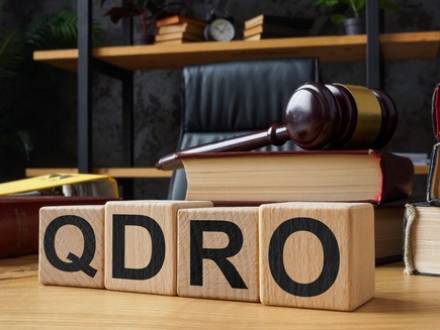Recent Blog Posts
Taking Legal Action After a Wrongful Death in Milwaukee
 In the devastating aftermath of losing a loved one, it can be very difficult to make practical decisions and plan for the future. Sometimes the most you can do is to get through each day in one piece as you plan a funeral, deal with logistics, and help your family members process the loss. And when that loss is caused by someone else’s negligence, the grief and overwhelm are compounded by a deep sense of injustice, even anger.
In the devastating aftermath of losing a loved one, it can be very difficult to make practical decisions and plan for the future. Sometimes the most you can do is to get through each day in one piece as you plan a funeral, deal with logistics, and help your family members process the loss. And when that loss is caused by someone else’s negligence, the grief and overwhelm are compounded by a deep sense of injustice, even anger.
If this situation sounds painfully familiar to you, you may have legal options. In Wisconsin, surviving family members have the right to pursue a wrongful death claim to seek accountability and compensation. While no amount of money can make up for what you have lost, a successful lawsuit can provide the financial support and legal recognition your family deserves.
If you believe your loved one’s death was preventable, one of our experienced, compassionate Milwaukee wrongful death attorneys can guide you through the complex legal process and help you decide what you want to do next.
Can You Sue Your Ex for Lying About Assets After the Divorce Is Final?
 In high-asset divorces, honesty is more than a moral principle; it is a legal duty. Wisconsin courts require both spouses to provide complete financial disclosures during a divorce. This includes listing all marital and individual assets, even those held in trusts, business entities, or foreign accounts.
In high-asset divorces, honesty is more than a moral principle; it is a legal duty. Wisconsin courts require both spouses to provide complete financial disclosures during a divorce. This includes listing all marital and individual assets, even those held in trusts, business entities, or foreign accounts.
If one spouse fails to do so, and the omission is not discovered until after the divorce is finalized, the law provides a potential path for correction. That path, however, is narrow, and it demands strong evidence and decisive legal action.
Post-divorce discovery of hidden assets is particularly common in high-net-worth cases. These often involve complex financial structures such as privately held companies, delayed compensation plans, or multi-layered investment portfolios. In such cases, one spouse may intentionally misrepresent the existence or value of an asset, leaving the other with an unfair settlement and no clear understanding of what was withheld until long after the papers are signed. Our Wisconsin divorce attorneys are here to make sure that does not happen to you.
Criminal Charges for Breach of Fiduciary Duty
 In Wisconsin, most breaches of fiduciary duty are handled in civil court. When those breaches involve deceit, theft, or abuse of power, prosecutors may pursue criminal charges. In 2025, state and federal authorities are showing greater willingness to treat certain financial misconduct and betrayals of trust not just as civil disputes, but as crimes worthy of jail time.
In Wisconsin, most breaches of fiduciary duty are handled in civil court. When those breaches involve deceit, theft, or abuse of power, prosecutors may pursue criminal charges. In 2025, state and federal authorities are showing greater willingness to treat certain financial misconduct and betrayals of trust not just as civil disputes, but as crimes worthy of jail time.
If you are being accused of a fiduciary breach that involves misuse of funds, public authority, or client assets, you may be facing more than financial penalties. You may be facing felony charges and need the help of a Wisconsin white collar criminal defense attorney right away.
What Is a Fiduciary and What Makes a Fiduciary Breach Criminal?
A fiduciary is someone entrusted to act in the best interests of another person or organization. The fiduciary role can exist between trustees and beneficiaries, financial advisors and clients, guardians and wards, corporate directors and shareholders, and many others. Even public officials have fiduciary duties to the people they serve. When fiduciaries act in self-interest or violate the trust placed in them, they may be liable in civil court.
Universities and NCAA Still Take Advantage of Student Athletes
 College athletes may have gained the right to profit from their name, image, and likeness (NIL), but that does not mean they are protected from being misled, exploited, or coerced. In Milwaukee and across the country, universities are still navigating how to implement NIL policies, and some are doing it better — or worse — than others. As a student athlete, it is easy to feel like you have finally been given power. But without strong guidance and legal protections, that power can be taken just as easily as it was granted.
College athletes may have gained the right to profit from their name, image, and likeness (NIL), but that does not mean they are protected from being misled, exploited, or coerced. In Milwaukee and across the country, universities are still navigating how to implement NIL policies, and some are doing it better — or worse — than others. As a student athlete, it is easy to feel like you have finally been given power. But without strong guidance and legal protections, that power can be taken just as easily as it was granted.
As of March 2025, universities must comply with both NCAA regulations and state laws governing NIL, and the NCAA cannot prohibit athletes from negotiating the terms of NIL payments before they agree to enroll in a school. Yet many student athletes still report feeling confused or cornered by the process.
5 Reasons Doctors Are Criminally Indicted
 Physicians and other medical professionals hold positions of immense trust. When the law is broken, even unintentionally, that trust can quickly become a legal liability. Criminal charges against doctors are on the rise in the United States, and the consequences can be devastating: prison time, license suspension, and irreversible harm to a hard-earned reputation.
Physicians and other medical professionals hold positions of immense trust. When the law is broken, even unintentionally, that trust can quickly become a legal liability. Criminal charges against doctors are on the rise in the United States, and the consequences can be devastating: prison time, license suspension, and irreversible harm to a hard-earned reputation.
At Gimbel, Reilly, Guerin & Brown, LLP, our Milwaukee, WI criminal defense attorneys represent medical professionals throughout Wisconsin who have been accused of many types of crimes. We understand the unique pressures doctors face and how legal issues intersect with clinical practice. Below are five of the most common reasons doctors are criminally indicted and what can be done to fight back.
Prescription Fraud and Drug Offenses
Federal and state authorities aggressively pursue cases involving the illegal prescribing or distribution of controlled substances. Doctors may be charged under statutes such as the Controlled Substances Act (CSA) or state-level drug laws for writing prescriptions that are deemed medically unnecessary, especially for opioids, benzodiazepines, and stimulants.
Summer is a Prime Time for Injuries from Negligence
 The long days of summer are meant to be enjoyed. Wisconsin’s many lakes, backyard barbecues, road trips, and outdoor recreation are all some of the best parts of summer. But these warm-weather activities also come with heightened risks.
The long days of summer are meant to be enjoyed. Wisconsin’s many lakes, backyard barbecues, road trips, and outdoor recreation are all some of the best parts of summer. But these warm-weather activities also come with heightened risks.
Each summer, emergency rooms across Wisconsin see a sharp rise in serious injuries caused by negligent behavior. From poolside accidents to high-speed recreational vehicles, summer often brings a surge of preventable harm, especially when alcohol is involved.
If you or someone you love was injured during a summer activity and you suspect negligence was involved, you may have grounds for a personal injury claim. Understanding where and how these injuries happen can help you protect your rights and recover the compensation you need to avoid financial hardship. Start by contacting a Wisconsin personal injury attorney with Gimbel, Reilly, Guerin & Brown, LLP.
What is the Criminal Appeals Process in Wisconsin?
 Being convicted of a serious crime — especially a white-collar or high-profile offense — is not necessarily the end of the road. In Wisconsin, the law provides the opportunity to challenge a criminal conviction through the appeals process. Whether the issue involves procedural errors, improper jury instructions, or newly discovered evidence, a successful appeal can mean the difference between years behind bars and full exoneration.
Being convicted of a serious crime — especially a white-collar or high-profile offense — is not necessarily the end of the road. In Wisconsin, the law provides the opportunity to challenge a criminal conviction through the appeals process. Whether the issue involves procedural errors, improper jury instructions, or newly discovered evidence, a successful appeal can mean the difference between years behind bars and full exoneration.
At Gimbel, Reilly, Guerin & Brown, LLP, our team of Milwaukee appellate attorneys have extensive experience representing clients in complex and high-stakes criminal appeals. With a deep bench of legal talent, strategic resources, and a history of defending clients in white-collar and high-profile criminal cases, we understand what it takes to uncover errors, build compelling legal arguments, and fight for justice — even after a guilty verdict.
What Is a Criminal Appeal?
An appeal is not a new trial. It is a formal request for a higher court to review the lower court’s decision to determine whether legal mistakes were made that affected the outcome of the case. Appeals are handled by appellate courts, and the process focuses on legal arguments rather than re-trying facts or introducing new witnesses.
What to Do if You Are Facing Federal Charges for Healthcare Fraud
 Facing federal charges for healthcare fraud is a serious situation that can result in long-term consequences, including prison time, fines, loss of licensure, and exclusion from federal healthcare programs. Federal prosecutors take these allegations seriously and dedicate extensive resources to investigating and pursuing cases. If you have learned you are under investigation or have already been charged, you need to act quickly and strategically with the help of a Wisconsin federal criminal defense lawyer.
Facing federal charges for healthcare fraud is a serious situation that can result in long-term consequences, including prison time, fines, loss of licensure, and exclusion from federal healthcare programs. Federal prosecutors take these allegations seriously and dedicate extensive resources to investigating and pursuing cases. If you have learned you are under investigation or have already been charged, you need to act quickly and strategically with the help of a Wisconsin federal criminal defense lawyer.
This blog explains what healthcare fraud looks like under federal law, how investigations usually unfold, what penalties you may face, and what to do next if you are being targeted.
How Does Federal Law Define Healthcare Fraud?
Federal healthcare fraud laws prohibit knowingly submitting false information to obtain money or benefits through a healthcare program. Most charges involve claims submitted to Medicare, Medicaid, or private insurance companies. These cases often fall under one or more federal statutes, including:
GRGB Gets Proven Results in High-Profile and High-Stakes Criminal Cases
 When someone is facing criminal charges — especially charges that threaten their freedom, reputation, and future — choosing the right attorney becomes the most important decision that person will make in their life.
When someone is facing criminal charges — especially charges that threaten their freedom, reputation, and future — choosing the right attorney becomes the most important decision that person will make in their life.
At Gimbel, Reilly, Guerin & Brown, LLP, our criminal defense team has earned a reputation in Milwaukee and throughout Wisconsin for handling some of the most serious and highly publicized cases in the state. We are trusted not just for our courtroom skill, but for our professionalism, strategy, discretion, and results.
Over the decades, our Milwaukee criminal defense attorneys have stood beside clients in complex, high-exposure cases involving federal investigations, life-changing prison sentences, and intense media scrutiny. We do not just navigate these challenges; we fight them head-on, using decades of experience, creative legal strategies, and a deep bench of legal resources.
Everything You Need to Know About QDROs in Wisconsin
 When high net worth couples divorce, one of the most complex aspects of property division is determining how to fairly and legally divide retirement accounts. These accounts often represent a substantial portion of the marital estate and must be handled with care to avoid unnecessary taxes, penalties, or delays. In Wisconsin, one of the key tools used to divide certain retirement assets is a Qualified Domestic Relations Order, or QDRO.
When high net worth couples divorce, one of the most complex aspects of property division is determining how to fairly and legally divide retirement accounts. These accounts often represent a substantial portion of the marital estate and must be handled with care to avoid unnecessary taxes, penalties, or delays. In Wisconsin, one of the key tools used to divide certain retirement assets is a Qualified Domestic Relations Order, or QDRO.
Our Wisconsin divorce attorneys for high net worth divorces will walk you through the essentials of QDROs in Wisconsin divorce cases: what they are, how they work, and the critical role they play in securing a fair distribution of retirement benefits.
What Is a QDRO?
A Qualified Domestic Relations Order (QDRO) is a court order that allows a retirement plan to pay a portion of one spouse’s retirement benefits directly to the other spouse following a divorce. These orders are governed by federal law under the Employee Retirement Income Security Act of 1974 (ERISA), and they apply to most employer-sponsored retirement plans. Common examples include 401(k)s, 403(b)s, pensions, and profit-sharing plans. IRAs, on the other hand, do not require a QDRO and are instead divided using a different process under the Internal Revenue Code.







